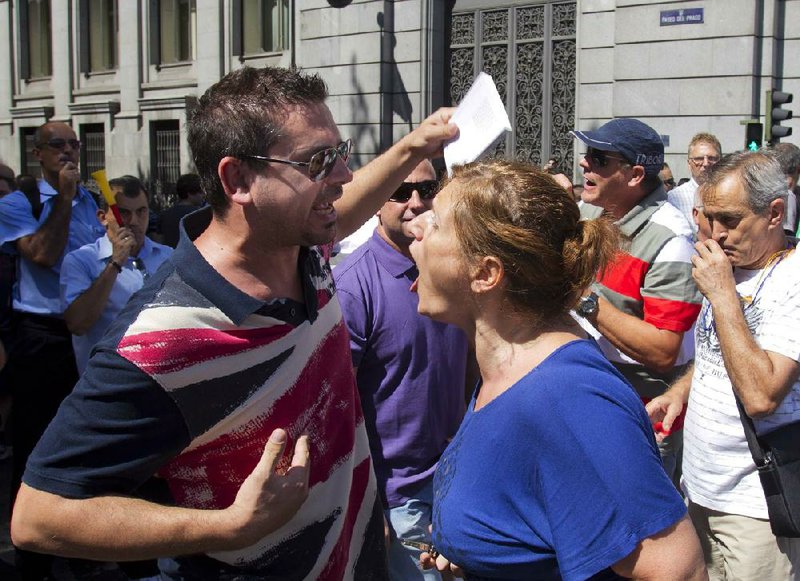MADRID, Spain — The Spanish economy remains stuck in its second recession in three years after contracting 0.4 percent in the second quarter of 2012, according to official data.
It was the third consecutive contraction after the previous two 0.3 percent quarterly declines, Spain’s National Statistics Institute said Monday.
The institute said that compared to the second quarter in2011, the economy had contracted 1 percent. A technical recession is commonly defined as two consecutive quarters of economic contraction. The slump was attributed to a fall in demand at home, offset slightly by an increase in exports, the institute said.
The conservative government predicts the economy will contract 1.5 percent for all of this year and 0.5 percent next year.
Spain has nearly 25 percent unemployment and is struggling to avoid having to seek a financial bailout, as Greece, Ireland and Portugal already have done.
Spain has asked for as much as $125 billion in loans for its banks, which are laden with soured investments after a property sector collapse in 2008. A sovereign bailout for Spain would be far larger.
The country has been under intense financial market pressure in recent months with the interest rate for its benchmark 10-year bonds on the secondary market surpassing the 7 percent barrier. Such a rate is considers unsustainable over the long term and taken as an indicator that the country may not be able to manage its finances without outside help.
The pressure has eased in recent days after European monetary leaders indicated they would work to help Spain.
On Monday, the 10-year yield edged down by 0.16 percentage points to 6.57 percent.
Spain’s Treasury head, Inigo Fernandez de Mesa, said Monday in an interview with Expansion newspaper that the government has no intention of asking Europe’s bailout funds to buy its bonds.
“It is not on the agenda that Spain asks the fund to help by buying debt, far from it,” de Mesa said in comments confirmed by an Economy Ministry official. “This hasn’t happened and I can assure you that it isn’t going to happen.”
Spain may need to request aid from the European Financial Stability Facility, the bloc’s temporary rescue fund, under the plan to lower bond yields that European Central Bank President Mario Draghi is working on with European leaders and central bank colleagues.The intervention would see the European Financial Stability Facility buy debt directly from the Spanish treasury while the central bank purchases bonds on the secondary market, two central bank officials said July 28.
The country’s Treasury tests investor sentiment Thursday when it auctions bonds maturing in 2014, 2016 and 2022.
Thursday also sees Italian Premier Mario Monti in Madrid for talks with Prime Minister Mariano Rajoy on the financial crisis battering both countries.
Information for this article was contributed by Ben Sills of Bloomberg News.
Business, Pages 21 on 07/31/2012
